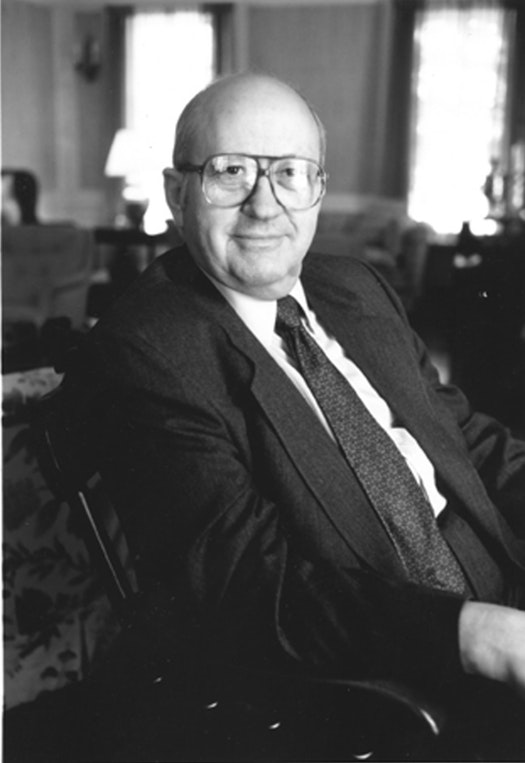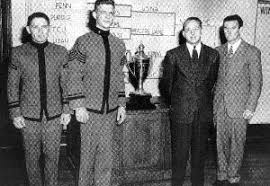Nobles Scholarships
W. Scott Nobles Forensics Scholarships

Dr. W. Scott Nobles was a legendary Professor of Speech and the Director of Forensics at the University of Oregon from the late 1950s through 1970 and a leading figure in the nearly 150-year history of Oregon Forensics.
Dr. Nobles was the winner of the very first National Debate Tournament in 1947. An argument innovator, Dr. Nobles was voted by his peers as the Outstanding College Coach of the 1960s. Under his leadership, Oregon Forensics won our first National Championship in 1969.
He invented the comparative advantage structure of argument, still the dominant type of affirmative used in high school and college debate.
Such was his love for the University of Oregon that even after nearly 30 years at Macalester, at his request, his ashes were spread across the roses outside Villard Hall, the historic home of Oregon Forensics.
Dr. Nobles published many articles in Quarterly Journal of Speech, Journal of the American Forensic Association, and Western Speech, which he edited for many years.
For a grant-funded project in the 1960s he interviewed many of the leading figures of the civil rights movement, including Dr. Martin Luther King.
Nobles Scholars
In loving memory of their coach, father and father-in law, Oregon Forensics alumni Greg and Becky Mowe have generously agreed to support current and future students with a scholarship named in his honor.
Recipients of the W. Scott Nobles Scholarships are known as Nobles Scholars and receive their awards during Winter or Spring terms of a year in which they have competed for Oregon Forensics. Scholarships are typically awarded to students who are new to the program, often first-year students.
Up to six scholarships ranging from $1000-$5000 are awarded each year.

Oregon Forensics alumni wishing to contribute to the Nobles Scholarship endowed fund that is managed by the the Oregon Foundation should contact Director of Forensics Trond Jacobsen.
There are two types of awards for Nobles Scholars:
(1) outstanding competitor, given to students who have shown both great academic and competitive potential in either debate or mock trial, including a minimum GPA of 3.0 in the fall term prior to receiving the award.
(2) outstanding leader, given to a student who shows extraordinary dedication to the program through their initiative and commitment to team development, for instance taking on extra duties for the Robert D. Clark Invitational, while maintaining a minimum GPA of 3.0 in the fall term prior to receiving the award.
The Nobles Scholarships are open to all active, current undergraduate students in Oregon Forensics. To be considered for a scholarship, a student should submit an application using the form below no later than December 15 for awards given the following Winter or Spring of the same academic year.
The student statement should be no more than 1500 words in length and should include the following elements: (1) indicate whether they are applying for the outstanding competitor or outstanding leader award; (2) explain how they uphold the legacy of academic and forensics excellence exemplified by Dr. Scott Nobles and incorporate at least one academic article by Dr. Nobles in their statement; and (3) describe why they deserve recognition as a Nobles Scholar.
Students are eligible to receive scholarships more than once in extraordinary circumstances or when there are not a sufficient number of applicants among new students. Applications are reviewed by the Director of Forensics and awarded in consultation with two members of the Clark Honors College staff.
Please use the form below to submit applications for Nobles Scholarships.
Select articles by Dr. Nobles:
Communication in the Education of Legal Advocates
